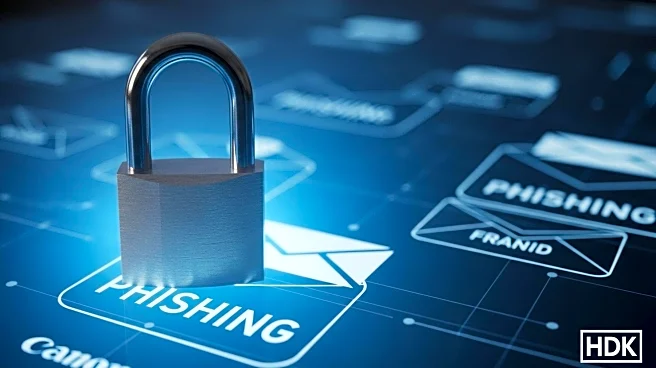What's Happening?
KnowBe4's latest CyberheistNews edition delves into the behavioral science behind phishing attacks, emphasizing the human mind's susceptibility to cognitive biases. The report highlights how attackers exploit these biases, such as authority and optimism bias, to trick individuals into clicking on malicious links. The publication stresses the importance of 'Cyber Mindfulness,' a strategy to help individuals recognize and pause before reacting to phishing stimuli. This approach aims to counteract the automatic responses triggered by phishing emails, which often lead to security breaches.
Why It's Important?
The increasing sophistication of phishing attacks poses significant risks to organizations, as they exploit human vulnerabilities rather than technical flaws. This highlights the need for comprehensive security awareness training that goes beyond traditional methods. By understanding and addressing the psychological aspects of phishing, organizations can better equip their employees to recognize and resist these attacks. This is crucial in reducing the incidence of data breaches and financial losses, which are often the result of successful phishing attempts.
What's Next?
Organizations are likely to invest more in behavioral science-based training programs to enhance their cybersecurity posture. As phishing tactics evolve, continuous education and awareness will be essential in maintaining a robust defense against these threats. Companies may also explore integrating advanced detection technologies to complement human vigilance, creating a multi-layered security approach.
Beyond the Headlines
The focus on human factors in cybersecurity underscores a broader shift towards understanding the role of psychology in digital security. This approach could lead to more personalized and effective security strategies, as organizations tailor their defenses to the specific cognitive biases and behaviors of their workforce.











